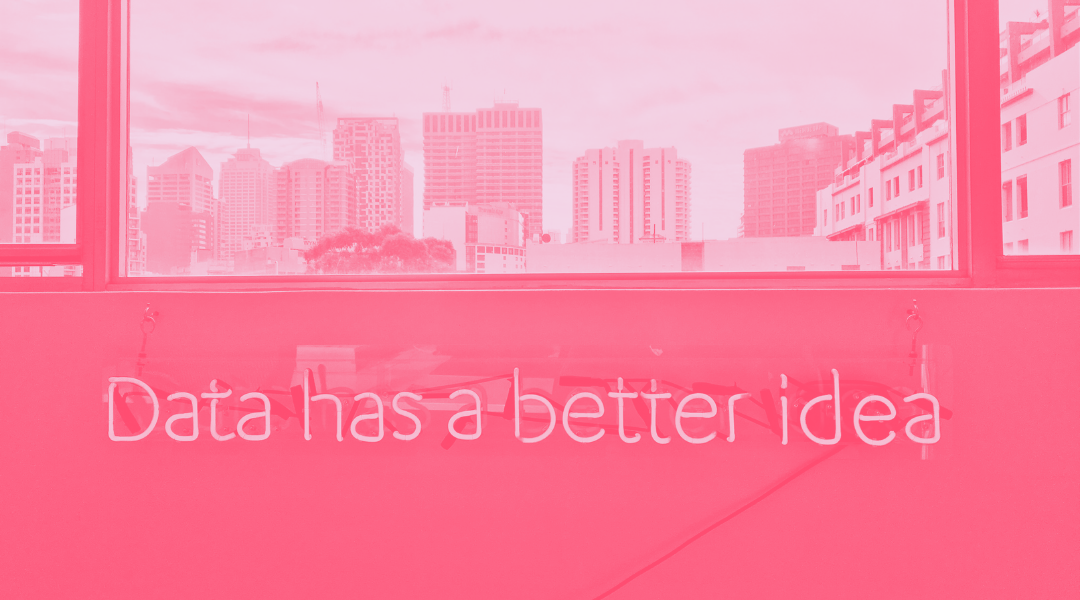Data privacy is a key issue in digital marketing. With the move towards a cookieless environment and increasing restrictions on the use of third-party cookies, brands must adapt their strategies without compromising user privacy. Areas such as ad personalization, retargeting and conversion tracking are particularly affected. A key solution is to invest in first-party data through CRMs and technologies that guarantee control and security of information.
This is where Conversions API (CAPI) becomes a critical tool.
TABLE OF CONTENTS
-
How to avoid duplication of events when integrating CAPI and Pixel
- Conversions API, the key to future-proof digital marketing
What is Conversions API and why is it key today?
Conversions API (CAPI) is a tool designed to address the privacy and performance challenges of today's digital ecosystem. It allows advertisers to send events from their servers directly to platforms, ensuring reliable and secure tracking, even when browser or cookie blockers limit the effectiveness of traditional methods.
Top, Pixel-Facebook process and bottom, Pixel-Server-CAPI process.
At Adsmurai we recommend implementing CAPI alongside the Pixel , as this combination optimizes campaign performance by offering higher quality data for more accurate full-funnel tracking.
Conversions API vs. Píxel: Competition or collaboration?
Although it may seem that CAPI replaces the conversion pixel , both work better together :
- Pixel: Collects website activity data and associates it with user profiles on social media platforms. It is key to understanding user behavior in real time, but its effectiveness is affected by blockers and browser restrictions.
- Conversions API: Sends first-party data (consumer ID, purchase events, logs, etc.) directly from the server. This ensures greater privacy, security, and reliability, even in scenarios where the Pixel falls short.
Together, CAPI and the Pixel provide a complete and robust view of campaign performance, optimizing results and ensuring regulatory compliance.
An example of this is the case of Stradivarius , which by implementing the Pinterest Conversions API alongside the traditional pixel, was able to obtain more accurate and detailed data on the performance of its ads. Thanks to this integration, the brand experienced an 82% increase in matched conversions and a 28% improvement in CPA, demonstrating how the combination of these tools can maximize the effectiveness of campaigns.
How to avoid duplication of events when integrating CAPI and the Pixel
The integration of CAPI and the Pixel must be done carefully to avoid duplication of events , which could skew the results. Meta has incorporated an automatic deduplication system that compares:
- event_name and the name of the Pixel event.
- CAPI event_id and the Pixel event_id .
If both parameters match, the platforms automatically deduplicate the event, ensuring clean and accurate tracking without inflated data.
Key benefits of Conversions API for your campaigns
Overall, the best advantage of CAPI is that it helps marketers offer transparency and data control to consumers while still delivering personalized experiences. That is, control what data is shared with Facebook's servers and still be able to send data despite cookie blocking.
🔎Full visibility of the conversion funnel
CAPI offers a holistic view of the customer journey. While the Pixel focuses on actions on the website, CAPI incorporates events outside of it , such as offline purchases or conversions after a subscription. This allows for a deeper understanding of user behavior and improves personalization capabilities.
💡 Signal reliability and strength
By operating from the server, CAPI guarantees the transmission of key data , even in the presence of cookie blockers or browser restrictions. This provides a more stable and reliable flow of information , essential for optimizing and personalizing advertising campaigns.
🛡️ Regulatory compliance and user trust
CAPI makes it easier to comply with privacy regulations like GDPR and CCPA by offering control over what data is shared and how it is transmitted. This reinforces user trust and ensures that campaign performance is not compromised.
🚀 Campaign performance optimization
With more accurate and complete data, brands can improve campaign optimization, fine-tuning audiences and strategies with greater precision. This translates into better conversion rates and a higher return on investment.
How to set up Conversions API with Google Tag Manager
Google Tag Manager is a powerful tool that simplifies the process of managing and deploying multiple tags on your website without the need for extensive coding. Tags include code snippets or tracking pixels from analytics tools, advertising platforms, etc.
Google Tag Manager Quick Setup
- Creating an Account: To get started, create a Google Tag Manager account by visiting the GTM website and signing in with your Google account.
- Container Setup: After creating an account, set up a new container within GTM. A container is a space dedicated to managing tags on a specific website.
- GTM Container Code: Once the container is configured, GTM provides a unique container code. Copy this code.
- Insert code into your website: Paste the GTM container code into the head section of your website. This allows GTM to start managing tags on your site.
Setting up Google Tag Manager provides a centralized and streamlined approach to tag management, including seamless integration with the Conversions API for efficient tracking and data transmission.

How to set up Conversions API with One Tag
Adsmurai’s answer to these challenges is “Adsmurai One Tag” (formerly known as “Serverless Tracking”). This solution provides a complete pixel implementation and conversions API through a subscription model, meticulously designed to meet the needs of brands. One Tag is a serverless, no-code solution available through three subscription plans, each tailored to accommodate different event volumes. Compatible with platforms such as Meta, Pinterest, TikTok, and Google, Adsmurai’s One Tag stands out as an easy-to-use alternative.
Adsmurai One Tag Key Features:
- Full implementation of the pixel and conversions API
- Flexibility in choosing a plan that fits the volume of events, providing scalability for brands of various sizes.
- Advertisers can implement tracking without extensive coding knowledge, lowering the barrier to entry.
- Adsmurai's One Tag supports all major advertising platforms including Meta, Pinterest, TikTok, Snapchat, and Google.
- The Tracking Health feature allows you to easily monitor the status and health of deployed pixels and events, providing transparency and control over the tracking process.
- Advertisers can configure their subdomain to bypass ad blockers and treat data as 1st party.
Until now, the conventional method was to insert the platform's pixel into the user's browser via Google Tag Manager. However, with Adsmurai's One Tag, a new method emerges. User activity on a website is not only transmitted via the pixel, as was done previously, but also via the Conversions API. This process uses Google Tag Manager hosted server-side on a Google Cloud server. It receives the user activity, formats it correctly, and sends it to the platform, offering a more resilient and future-proof solution.
A clear example of its benefits can be seen with Hush Puppies , who implemented Adsmurai One Tag to overcome data discrepancies and improve the accuracy of their Meta campaigns. Thanks to this technology, they were able to eliminate event duplication and stabilize costs, resulting in a 41.16% increase in web sessions and a 38.28% increase in purchases. This solution not only optimized measurement, but also improved the overall performance of their campaigns.
Let's learn how to keep track of user activity on your website in just a few clicks:
1. Get your Pixel ID and Access Token on the Business Manager platforms:
|
Meta |
TikTok |
|
Snapchat |
|
Go to the Meta Business Manager. |
Go to the TikTok Events Manager. |
Go to the Pinterest Events Manager. |
Go to the Snapchat Events Manager. |
|
Select the "Web Events" section. |
|||
|
Copy and save your Pixel ID. |
Copy and save your Pixel ID. |
Copy and save your Pixel ID. |
Copy and save your Pixel ID. |
|
Navigate to the “Settings” section. |
Navigate to the "Settings" section. |
Navigate to the "Settings" section. |
Navigate to the "Settings" section. |
|
Click on “Generate access token”. |
Click on "Generate access token". |
Click on "Generate access token". |
Click on "Generate access token". |
|
Copy and save this token |
Copy and save this token. |
Copy and save this token. |
Copy and save this token. |
- Access your user area in Adsmurai One Tag.
- Click the "+" symbol to add a new pixel.
- Paste the pixel ID and access token obtained from Meta.
- Generate your Adsmurai One Tag API key.
- Copy and save this generated API key.
- Go to your Google Tag Manager container.
- Open the One Tag label.
- Paste the API key generated above into Adsmurai One Tag.
- Configure the label with the information provided.
- Save the changes made.
Best practices for implementing the Conversions API with One Tag
By following these best practices and employing effective troubleshooting strategies, you can ensure a reliable and smooth setup of Conversions API with Adsmurai One Tag, while maintaining traceability of user activity on your website.
1. Organized management of Pixel ID and Access Token
Keep a well-organized record of pixel IDs and access tokens in Google Tag Manager by storing and using them.
2. Setting up the events required for dynamic ads
Follow the guidelines to set up the events and parameters required to run Dynamics Ads. For example, for an e-commerce site, the minimum events for Meta would be:
- View Content
- Add to cart
- Buy
3. Value and currency are required
When sending purchase-related events, be sure to send the value and currency it is expressed in. Otherwise, the channel will reject the server-side event.
4. Encrypts all user data
It uses SHA256 encryption to send user data such as email or phone number, which is a requirement of major providers. One Tag has a checkbox to do this automatically.
5. Uses the same activators
It is recommended to use the same triggers for similar actions in order to avoid discrepancies in channels. One Tag is a good way to do this, as it allows you to unify all events into one.
Conclusion: Conversions API, the key to future-proof digital marketing
In a digital environment where privacy and efficiency are a priority, Conversions API is positioned as an essential tool . It allows brands to:
- Adapting to the cookieless environment.
- Ensure the performance and personalization of your campaigns.
- Comply with privacy regulations.
- Protect user data without compromising results.
💡 If you haven't implemented Conversions API yet, now is the time. The future of digital marketing starts with reliable data, robust strategies, and respect for privacy.


![[Ebook] SEO + AI: eBook to Master AI Overviews and GEO](https://www.adsmurai.com/hubfs/MKT%20-%202025/WEB/Resources%20-%20Banners/HeaderEN_Ebook_SEO+AI.png)




